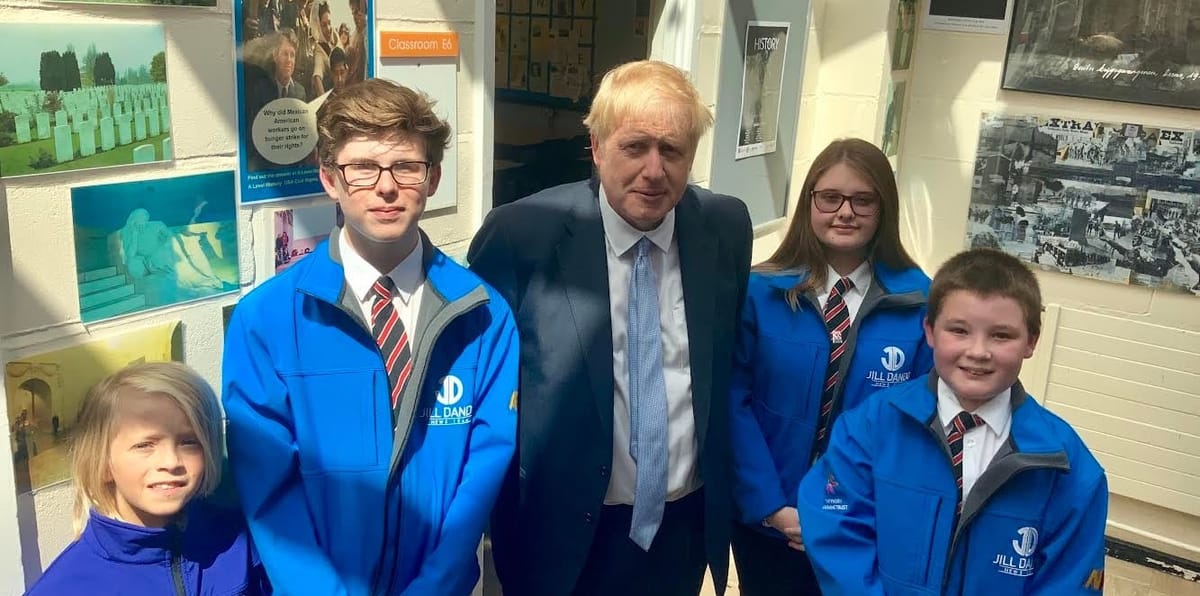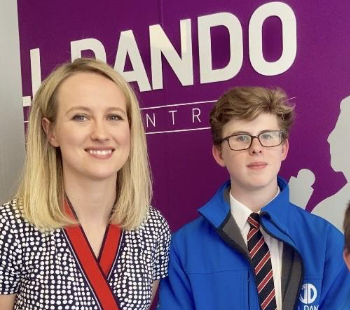From School Newsroom to National Spotlight: My Interview with Boris Johnson

By Jacob Kemp, Jill Dando News Correspondent
As I cast my beady eye over the latest developments at the Labour Party Conference, I am reminded of the first time I interviewed a politician, and what a first politician it was!
During the Summer of 2019, as the Brexit debate raged across the country, Boris Johnson and Jeremy Hunt were battling it out in a lively leadership challenge.
Little did I know that in a few weeks, I would be challenging him on the big issues in our school newsroom.
The excitement in the room was palpable as we prepared to meet the future Prime Minister, who was due to be interviewed by Sky Political Reporter (and all-round legend), Sophy Ridge. I turned to my friends, wondering what was to come.

We could hear a commotion outside, and suddenly a mop of blonde hair and advisors in backpacks thundered around the corner into the news center, eagerly pursued by a pack of reporters and photographers.
He shook our hands and began talking with us about the work of the Jill Dando News Centre, created to honour the legacy of Jill Dando’s phenomenal journalistic career.
The clicks of the cameras echoed around the room as the photographers jostled around behind him.
As we ended our conversation, I said to Boris Johnson that a renewed focus on mental health and a positive attitude towards the media should spearhead his political platform.
As the media laughed around him, he remarked on how “the media is a force for good” and joked about how ways of gathering news had changed since he was working as a journalist.
Once our exchange was over, he left the news center, swarmed by advisors with enormous backpacks and high-tech headphones. This image revealed to me the carefully choreographed nature of political communications.
No appearance by a politician is spontaneous in its content.
Remarks are prepared weeks in advance, appearances are brisk and brief, and interviews are carefully arranged to ensure optimum impact.

Recent books have highlighted the role of special advisers in this process, including “The Intimacy of Power”, written by Alun Evans. One adviser who stood out in this definitive account was Marcia Williams, known as Lady Falkender.
As the personal and political secretary to the Labour Prime Minister Harold Wilson, Lady Falkender wielded enormous power in influencing how Wilson’s political agenda was communicated through a burgeoning media landscape.
Her strident and strict remarks on how his speeches would be understood by normal voters, as well as how his choice of a pipe would maximise his appeal, as opposed to a cigar, all helped to form the popular image history has of the Wilson era.
It is time that history recognized her contribution to political communications, and how she paved the way for the women who came after her.
Satirical depictions of British politics are often lauded for their outlandish nature, but with social media becoming a more omnipresent feature of political communication, will the line between mystery and reality become more blurred than ever?





